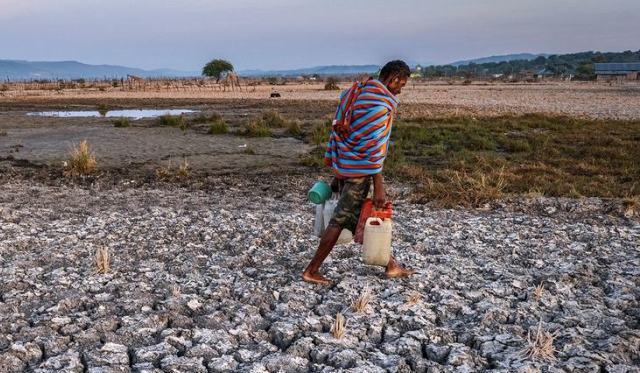The COP28 climate summit witnessed a historic moment as nations rallied around a groundbreaking deal urging a transition away from fossil fuels to combat the escalating impacts of climate change, Reuters news report said.
The accord, a culmination of extensive discussions, drew varying reactions from key stakeholders:
John Kerry, U.S. Special Climate Envoy, hailed the spirit of cooperation that led to the consensus, emphasizing the significance of global unity in tackling climate challenges.
Denmark’s Minister for Climate and Energy, Dan Jorgensen, highlighted the remarkable decision made in an oil-centric environment, marking a crucial shift away from traditional energy sources.
However, voices of concern emerged from Samoa’s Anne Rasmussen representing the Alliance of Small Island States, expressing confusion and dissatisfaction with the decision-making process. She underscored the necessity for more substantial actions beyond incremental advancements.
Bangladesh’s climate envoy, Saber Hossain Chowdhury, emphasized the criticality of adaptation measures, stressing the irrevocable nature of the climate crisis on lives and livelihoods.
Canada’s Environment Minister, Steven Guilbeault, lauded the historic nature of the COP28 agreement, spotlighting breakthrough commitments on renewable energy, energy efficiency, and the gradual move away from fossil fuels.
Senegal’s climate minister, Madeleine Diouf, speaking on behalf of the Least Developed Countries bloc, criticized the agreement for falling short of the necessary ambition needed to address the urgent climate crisis, particularly in bridging the gap between developing country needs and available finances.
China’s Vice Environment Minister, Zhao Yingmin, reiterated the historical responsibilities of developed countries in contributing to climate change.
The sentiment of disappointment continued as Marshall Islands’ head of delegation, John Silk, lamented the perceived inadequacy of the agreement, likening it to a canoe with glaring deficiencies in tackling the climate challenge.
Brazil’s Environment Minister, Marina Silva, expressed both satisfaction and a recognition of ongoing efforts while calling for shared responsibilities between developed and developing nations in pursuing the outlined trajectory away from fossil fuels.
In a pragmatic tone, Singapore’s Environment Minister, Grace Fu, acknowledged the agreement as a negotiated deal where compromises were necessary, urging a focus on the content and intentions rather than specific phrases like ‘phase out.’
Colombia’s Environment Minister, Susana Muhamad, highlighted positive aspects of holding discussions within oil-producing environments, recognizing the significance of involving pertinent stakeholders.
Former U.S. Vice President Al Gore welcomed the acknowledgment of the fossil fuel crisis but criticized the agreement for its limitations and called for immediate, decisive actions and financial mobilization to truly mark the transition away from fossil fuels.

